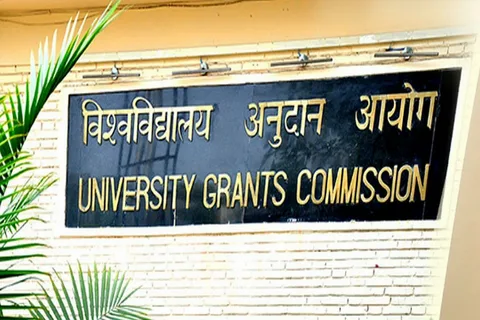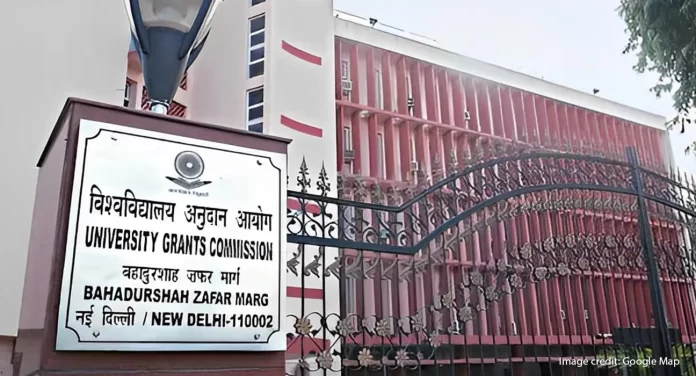
The UGC’s choice presently passes on it to the establishments to choose if they have any desire to offer confirmations in the two cycles or only one, and this will rely upon their framework and staff (Express photograph by Praveen Khanna)
The College Awards Commission (UGC) has now permitted advanced education establishments to concede understudies two times per year. The UGC’s recent decision means that students can now be admitted in January/February and in July/August during the upcoming academic session. Previously, regulations allowed students to be admitted only during July-August.
The decision made by the UGC now leaves it up to the institutions to decide whether they want to accept applications for either cycles or just one, which will be determined by their faculty and infrastructure.
The UGC has stated that biannual admissions are not required, but the decision now gives institutions “flexibility” to “increase their student intake and offer new programmes in emerging areas,” as the UGC has stated.
The Indian Express was informed by UGC Chairman M Jagadesh Kumar that “every university offers admissions in July/August.” Additionally, they are welcome to offer programs in January if they so choose.”
The circumstance may be unique to a specific institution; the moves can change from one foundation to another. The UGC provides a broader regulatory framework that allows institutions to determine the specifics on their own and put them into action if they believe they can,” he added.
On whether colleges may now have the option to offer admissions to various arrangements of courses in the two confirmation cycles, he said: “Depending on the infrastructure that is available, it is a choice for them. For a science program, assuming they find that for the understudies conceded in the July meeting lab offices are utilized in the daytime, they might need to involve lab offices at night for the meeting that started in January, so there is better use of assets accessible in colleges.”
Open and distance learning (ODL) and online mode programs were used by the UGC to begin this biannual admission process.
Kumar explained that the UGC found that during the trials in ODL and online, nearly half a million students who would have had to wait a year to join these programs were able to join in January. This is why the UGC decided to allow admissions twice a year.
“Students who have missed admissions for a variety of reasons in July and August may, even in the physical mode, have the opportunity to join in January rather than waiting a full year. Additionally, it is a global practice. Jagadesh Kumar stated, “It also has the potential to increase the GER (Gross Enrolment Ratio) as well.”
Universities will need to make changes to their institutional regulations and get the decision approved by their academic and executive councils if they want to start a second session in January. PhD, postgraduate, and undergraduate programs can all benefit from this two-year admissions process.
The UGC Chairman stated, “For PhD admissions, currently all universities admit in July.” This statement pertains to programs to which admissions are based on entrance exams. We conduct the UGC-NET twice annually. As a result, PhD programs can now begin accepting students twice per year. For postgraduate projects, CUET (PG) isn’t compulsory, it is just a choice and numerous colleges concede in view of their own selection test or stamps in undergrad programs. Presently they can offer half-yearly confirmations in aces programs”.
Similarly, he stated that other universities do not require CUET (UG) for undergraduate programs, with the exception of central universities. They combine CUET (UG) scores, their own entrance exam, and board exam scores as admissions criteria. The UGC chairman mentioned that “any university wants to start UG programmes in a second session, they are free to do so.”
He added, when asked if entrance exams might now have to be held twice a year: Nowadays, entrance exams are driven by technology. In a perfect world, on the off chance that they are directed two times every year, it will be valuable to understudies. Individually we are attempting to execute that. I hope that the majority of entrance exams will be administered twice annually by the NTA over time.





